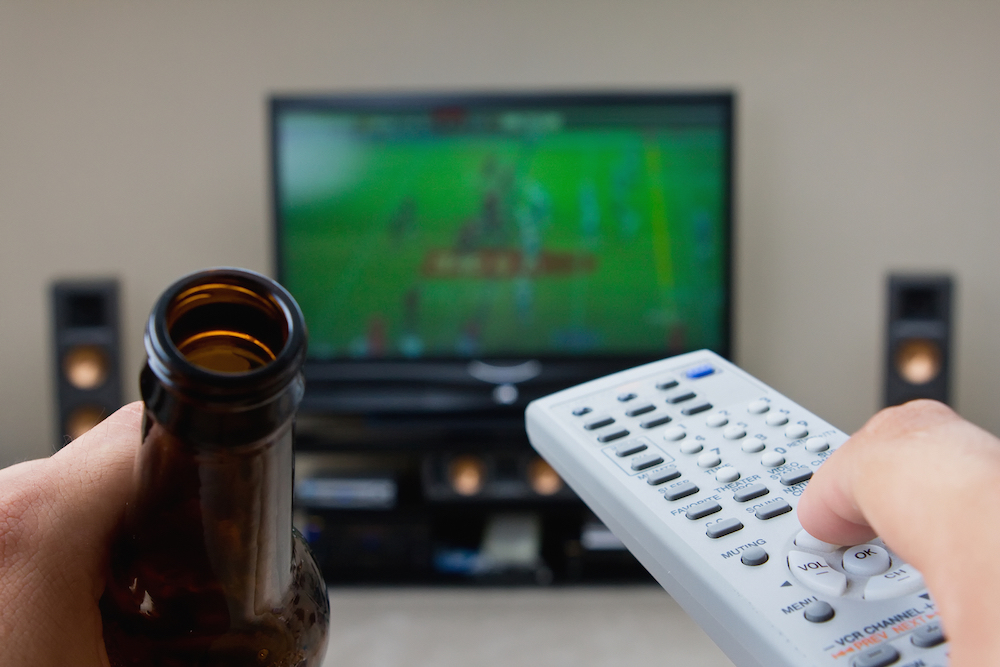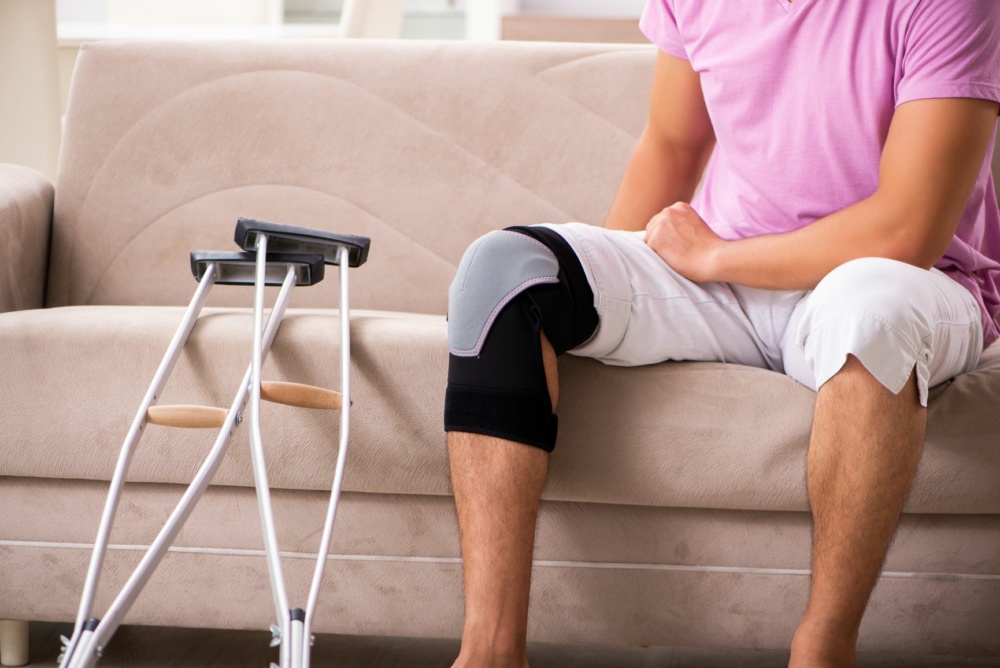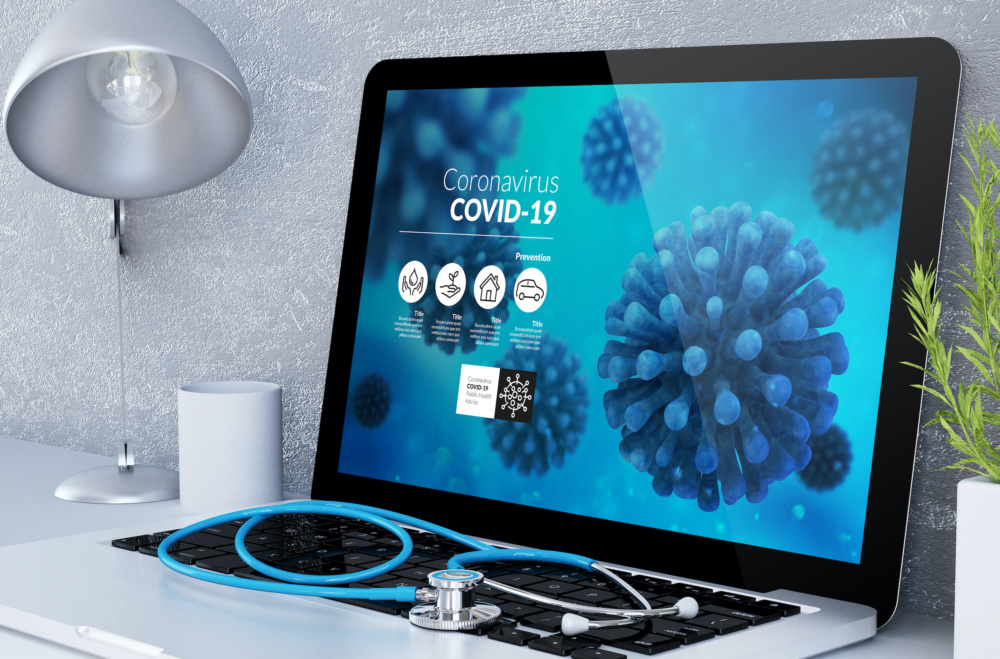[dropcap size=small]T[/dropcap]elevision audience research notes that in the fall and winter, everyone, especially men, spends a great deal of time watching sports. This is good news for the sponsors of the NCAA and the NFL, but it’s bad news for the health of these so-called “couch potatoes” who are spending vast amounts of time watching. Based on a recent study, this lack of physical activity can have unintended consequences for the brain.
Poor physical fitness in middle age may be linked to a smaller brain size 20 years later, according to a study published in the online issue of Neurology, the medical journal of the American Academy of Neurology.
Smaller Brains Noted In A Comprehensive Study
The latest research focused on approximately 1,600 people, with an average age of 40-years-old and no history of dementia or heart disease. The subjects took a treadmill test to establish a base for the study. Two decades later, these individuals took another treadmill test and the researchers added an MRI brain scan to their evaluation to determine the size of the respondents’ brains.
Exercise capacity was determined, and for every eight units a person performed lower on the treadmill, their brain volume was correspondingly smaller, equivalent to two years of accelerated brain aging. The study also showed that people whose blood pressure and heart rate went up at a higher rate during exercise were also more likely to have smaller brain volumes two decades later.
“We found a direct correlation in our study between poor fitness and brain volume decades later, which indicates accelerated brain aging,” said study author Nicole Spartano, Ph.D, with Boston University School of Medicine in Boston.
“Poor physical fitness in middle age may be linked to a smaller brain size 20 years later, according to a study published in the online issue of Neurology”
An Earlier Study Revealed Similar Results
For many years, gerontologists and others who study and treat age-related diseases, such as dementia and Alzheimer’s disease, have noted the effect in the decline of the mental health of older patients who get little or no physical activity.
This latest research is a follow-up to a similar study from two years ago. In the earlier study, researchers put a group of rats in a cage with a wheel and another group in a cage with no wheel. After a period of time, they injected the rats with dye and completed MRI scans and found that the brain volume of the group with no wheel, and therefore no physical activity, was considerably less than that of the group with an exercise source.
What was fascinating about the study was the change in the “personality” of the sedentary rats. These “couch potatoes” had a higher fight-or-flight response and were hyper-sensitive to things going on around them. They would act erratically, their heart rate increased and they had chemicals that increased their likelihood of heart attacks.
It comes back to the old adage – if you don’t use it, you lose it. We see this in every part of the body. When you are consistently sedentary, everything is slowing down. The metabolism slows down and the blood flow to the brain is reduced, resulting in fewer nutrients that feed the brain.
The Role Of Aging On A Sedentary Lifestyle
As one gets older, several factors can lead to a sedentary lifestyle. Many factors can cause a reduction of physical activity. However, as we age, it is even more important to stay active.
There are many studies that show the benefit of any kind of physical and mental activity for seniors. Just taking a brief walk every day can enable older people to live longer and have better cognitive function. Plus, volunteering can help stimulate mental acuity and reduce the likelihood of dementia. There is a definite correlation between an active brain and body and longevity.
“We found a direct correlation in our study between poor fitness and brain volume decades later, which indicates accelerated brain aging” -Nicole Spartano, Ph.D, with Boston University School of Medicine in Boston
Balanced Hormones Play A Big Role In Brain Health
There are hundreds of thousands of hormones in our brain alone. As we age, starting when we are about 40-years-old, testosterone and estrogen levels decline. Plus, those hormones in the brain are not stimulated.
This causes many problems, including feeling depressed or moody. Frankly, some people don’t feel like getting out of bed in the morning and this can be due to declining hormones. Hormone replacement therapy can help “jump-start” you physically, building muscle and reducing fat.
Tips for Keeping Physically Active at +50-years-old
We treat hundreds of patients each week at Evexias Medical Centers, many of whom are over 50-years-old. This experience has afforded us tips for avoiding cognitive decline due to a sedentary lifestyle:
First off, I strongly recommend anyone who is 40-years-old, or older, get a hormone analysis blood test. This will make a huge difference in one’s physical and mental energy.
Also, as we age, we don’t need as much caloric intake as we did when we were 20-years-old. Working with a specialist to create a personalized, manageable diet and a regular physical activity program, even if it is just walking around the block, is critical to this process. The most important tip is to find some physical activity that’s fun to do and then do it. Seniors don’t need to do the intense workouts in a gym. Just walking or biking, along with stretching exercises can keep the blood flowing to the brain and help us avoid cognitive decline.
So, get off that couch. You’ve got a great life to live!
For more information visit www.evexiasmedical.com.
About EVEXIAS® Medical Centers: The Texas-based centers are the premier industry leader and innovator of the Medical Wellness movement via superior patient care and the utilization of revolutionary, preventive and regenerative medical and aesthetic technologies. The mission is to partner with each patient to bring healing by understanding the root cause of a patient’s particular health concern, and subsequently formulating an effective, individualized treatment plan, always recognizing the body, mind and spirit contribute to the overall health of humanity.





Recent Comments